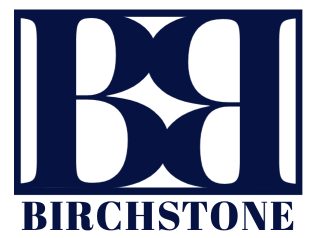Like a compass guiding investors through a complex maze, this article serves as a comprehensive guide to maximizing tax benefits in real estate.
With the ever-changing landscape of tax laws and regulations, understanding the various deductions available can be crucial in optimizing financial returns.
From the advantages of 1031 exchanges to the intricacies of rental property depreciation, this article explores the technicalities and nuances of real estate deductions, equipping investors with the knowledge necessary to navigate the tax terrain with confidence.
Key Takeaways
- Real estate investors can take advantage of various tax deductions, such as 1031 exchanges, bonus depreciation, and rental property depreciation, to reduce their tax liabilities.
- It is important to understand the difference between deductible ordinary and necessary expenses and capital improvements, as only the former can be deducted immediately, while the latter must be depreciated over time.
- Investing in real estate offers substantial tax benefits, including depreciation, accelerated depreciation, 1031 exchanges, and deductions allowed by the tax code.
- Some common tax deductions for real estate and rental property owners include maintenance and repairs, utilities, advertising, legal fees, property management fees, and mortgage interest.
Maximizing Tax Benefits
One important aspect of real estate investment is maximizing tax benefits. This can be achieved through various strategies such as taking advantage of tax deductions and incentives outlined in the pre-existing knowledge.
Tax planning and implementing effective tax strategies are crucial for real estate investors to minimize their tax liability and maximize their returns. By understanding the tax laws and regulations related to real estate, investors can identify deductible expenses, utilize tax credits, and employ tax-saving techniques to optimize their tax benefits.
This includes utilizing deductions for maintenance and repairs, utilities, advertising, legal fees, and property management fees. Additionally, investors can take advantage of tax incentives like the 1031 exchange for commercial multifamily properties and bonus depreciation.
By strategically planning their taxes, real estate investors can significantly reduce their tax burden and increase their profitability.
Types of Deductions
There are various categories of deductions that can be claimed for real estate investments. Deductible expenses play a crucial role in tax planning for real estate investors. By understanding and utilizing these deductions, investors can maximize their tax benefits and reduce their overall tax liability.
Some common deductible expenses include maintenance and repairs, utilities, advertising, legal fees, and property management fees. These expenses are considered ordinary and necessary for the operation of the rental property and can be deducted from the rental income. However, it is important to distinguish between deductible business expenses and capital improvements.
While business expenses can be fully deducted in the year they are incurred, capital improvements must be depreciated over time.
By carefully tracking and documenting these deductible expenses, real estate investors can optimize their tax planning strategies and take full advantage of the tax benefits provided by the tax code.
Common Deductions
Common deductions for real estate investments include maintenance and repairs, utilities, advertising, legal fees, and property management fees, which can be deducted from the rental income. These deductions help reduce the taxable income generated by the rental property, ultimately lowering the investor's tax liability.
To provide a more comprehensive understanding of these deductions, the following table outlines the common deductible expenses for real estate investments:
| Deductible Expenses | Description |
|---|---|
| Maintenance and Repairs | Expenses incurred to keep the property in good condition and functioning properly. This includes painting, fixing leaks, and repairing appliances. |
| Utilities | Costs associated with providing necessary services to the property, such as water, electricity, and gas. |
| Advertising | Expenses related to marketing the rental property, including listing fees, signage, and online advertisements. |
| Legal Fees | Fees paid for legal services, such as drafting rental agreements, eviction proceedings, and property-related lawsuits. |
| Property Management Fees | Costs associated with hiring a property management company to oversee the day-to-day operations of the rental property, including rent collection, tenant screening, and property maintenance. |
By taking advantage of these rental property deductions, real estate investors can maximize their tax benefits and improve their overall financial position.
Frequently Asked Questions
How do I calculate the depreciation of my rental property for tax purposes?
Calculating depreciation for tax purposes involves determining the property's cost basis, useful life, and method of depreciation. By accurately calculating depreciation, real estate investors can maximize their tax benefits and reduce their taxable income.
Are there any tax deductions available for real estate investors who use a property management company?
Real estate investors who use a property management company may be eligible for tax deductions. These deductions can include expenses such as property management fees, advertising costs, legal fees, and maintenance and repairs. These deductions can help maximize tax benefits for real estate investors.
Can I deduct the cost of hiring a real estate attorney for legal advice related to my investment property?
The cost of hiring a real estate attorney for legal advice related to an investment property may be tax deductible. This falls under the tax benefits of real estate investments, as it is considered a deductible expense.
Are property taxes fully deductible for rental properties?
Property taxes for rental properties are deductible, but the full deductibility depends on various factors such as the property's use, rental income, and personal use. Calculating depreciation and maximizing rental deductions can help optimize tax benefits.
Is there a limit to the amount of mortgage interest I can deduct as a real estate investor?
The amount of mortgage interest that can be deducted as a real estate investor is subject to certain limitations. It is determined by calculating taxable income and considering the impact of mortgage interest rates.

